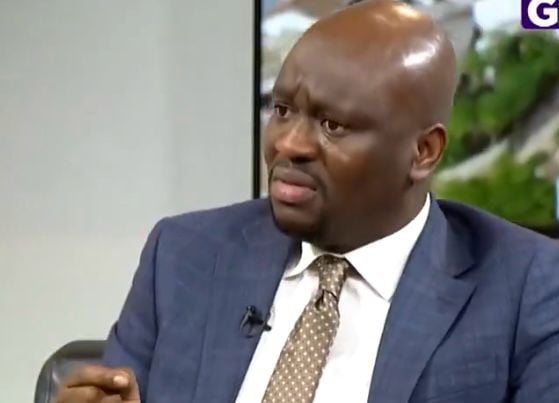Hamza Suhuyini, a member of the National Democratic Congress (NDC) communication team, has launched a scathing critique of former Vice President Dr. Mahamudu Bawumia, questioning his leadership qualities in the aftermath of the New Patriotic Party’s (NPP) defeat in the 2024 general elections. Suhuyini’s accusation stems from Dr. Bawumia’s recent public pronouncements on the factors that contributed to the NPP’s loss, which Suhuyini interprets as an attempt to distance himself from the Akufo-Addo administration and its policies. The core of Suhuyini’s argument hinges on a comparison between Dr. Bawumia’s conduct and that of President Akufo-Addo following the NPP’s defeat in 2008. He highlights Akufo-Addo’s steadfast defense of former President Kufuor’s legacy, even in the face of electoral defeat, contrasting it with what he perceives as Dr. Bawumia’s current efforts to shift blame.
Suhuyini contends that Akufo-Addo, despite losing the 2008 election, consistently maintained public support for Kufuor’s policies and governance. He never publicly criticized or disavowed his predecessor’s actions, demonstrating, according to Suhuyini, a commitment to party unity and a sense of shared responsibility for both successes and failures. This loyalty, Suhuyini argues, is a hallmark of true leadership, a quality he believes is conspicuously absent in Dr. Bawumia’s current posture. He points to Dr. Bawumia’s identification of specific policies and economic challenges as contributing factors to the NPP’s 2024 loss as evidence of an attempt to deflect responsibility and rewrite his role within the previous administration.
Dr. Bawumia, in his reflections on the 2024 election results, attributed the NPP’s defeat to several key factors, including the prevailing economic hardship, ineffective internal party management, unpopular government policies, and a pervasive arrogance of power within the administration. He specifically cited issues such as the escalating cost of living, the resistance to reshuffling government appointees, the controversial Electronic Transfer Levy (E-Levy), and the implementation of the Domestic Debt Exchange Programme (DDEP) as critical missteps that contributed to public dissatisfaction and ultimately, the party’s downfall at the polls.
However, Suhuyini dismisses Dr. Bawumia’s analysis as politically expedient and driven by personal ambition. He argues that Dr. Bawumia, as the Vice President, was an integral part of the decision-making process and never publicly expressed dissent or opposition to these policies when they were being implemented. Suhuyini’s criticism centers on what he perceives as a lack of consistency and principle in Dr. Bawumia’s current stance, suggesting that his critique is motivated by a desire to distance himself from the unpopular legacy of the Akufo-Addo administration and position himself more favorably for future leadership bids within the NPP.
The contrasting portrayals of Akufo-Addo’s and Bawumia’s responses to electoral defeat serve as the backdrop for Suhuyini’s broader critique of Bawumia’s leadership style. He insinuates that Bawumia’s current narrative is a calculated attempt to rewrite history and absolve himself of responsibility for the very policies he helped implement. This, according to Suhuyini, demonstrates a lack of accountability and a willingness to prioritize personal political aspirations over the collective good of the party.
Ultimately, Suhuyini’s critique raises questions about the nature of political leadership, the responsibility of individuals within a governing body, and the appropriate response to electoral setbacks. He presents Akufo-Addo’s steadfast support for Kufuor as a model of principled leadership, contrasting it with what he views as Bawumia’s opportunistic repositioning. This debate highlights the complexities of political accountability and the challenges of maintaining party unity in the face of defeat, particularly when assigning responsibility for policy failures and their electoral consequences.


